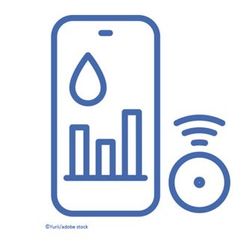© 2025 MJH Life Sciences™ , Patient Care Online – Primary Care News and Clinical Resources. All rights reserved.
Thyroid Problems May Spell Trouble for Diabetes Risk
Low thyroid function predisposes to weight gain, which may partly explain the association with higher risk of diabetes.
Longitudinal analysis finds risk highest for those with prediabetes
BOSTON -- Patients with normal thyroid function are less likely to eventually wind up with type 2 diabetes than those with thyroid problems, according to a longitudinal analysis presented here.
Researchers looked at 8,000 patients with levels of thyroid-stimulating hormone (TSH) and low free thyroxine levels that were high but still within the normal range; they found that low free thyroxine levels were were associated with a 1.2-fold increased risk for developing type 2 diabetes, and a 1.4-fold increased risk for progressing from prediabetes to diabetes. Co-author Layal Chaker, MD, of Erasmus University Medical Center in Rotterdam, the Netherlands, presented the findings at an oral session at the Endocrine Society annual meeting.
"We asked ourselves, if you don't have diabetes yet, and you have a low thyroid function, do you then develop diabetes?" Chaker said in an interview with MedPage Today. "There has been no consensus reached from previous cross-sectional studies. That is a bit of a conflict in literature."
Chaker cautioned that thyroid function was not the only factor contributing to diabetes, "but I do think that it can contribute. And the question is how big is that contribution,?" she said. "And we don't know if this contributes to diabetes later."
Chaker's group evaluated 8,452 men and women who were part of the Rotterdam Study. The cohort had an average age of 65, and all of the participants were diabetes-free at baseline. They were tested for TSH and free thyroxine. Participants were followed for an average of 7.9 years.
The researchers adjusted for body mass index (BMI), blood pressure, glucose measurements, and insulin, but according to Chaker, none of these made a difference in the findings.
During the follow-up period, 1,100 of the participants developed prediabetes (HbA1c >5.9 mmol/dL), and 798 developed type 2 diabetes, (HbA1c >7.0 mmol/dL).
Higher TSH at baseline was associated with a higher risk for developing diabetes (hazard ratio 1.13, 95% CI 1.08-1.18), even within the clinical reference range of thyroid function (HR 1.24, 95% CI 1.06-1.45).
Higher free thyroxine levels were associated with a lower diabetes risk in all (HR 0.96, 95% CI 0.93-0.99), which remained the same within the reference range.
The risk of progression from prediabetes to diabetes was 1.4 times higher comparing the lowest with the highest tertile within the normal range of thyroid function (P=0.002).
"Low thyroid function was associated with a 1.2-fold risk of increased incident diabetes, and 1.4-fold increased risk for progression from prediabetes to diabetes, even from the normal range of thyroid function," Chaker said. "That might not sound like much, but this is per unit increase, and even in the normal range of thyroid function."
"We did do some sensitivity analysis, excluding people on levotharoxine," Chaker said. "But we didn't see much difference in the effect."
Chaker said further research will be necessary to determine the application of this data. "It could be that we only screen for low thyroid in a certain subgroup of people."
"One of the main results, that low normal thyroid function are risk factors for diabetes, and prediabetes, makes sense, because when patients have the potential of developing low or low-normal thyroid function, their risk for hypothyroidism increases, which is associated with weight gain," Deena Adimoolam, MD, of Mount Sinai Hospital in New York City, said in an interview with MedPage Today.
"There are no real other associations, other than hypothyroidism and prediabetes, that would make sense," she said, adding that "perhaps some patients who are predisposed to developing one endocrinopathy, could be at risk for developing another endocrinopathy as well," Adimoolam said. "We see that often, too."
But it's hard to interpret the results as they relied on information from health records, "which are vulnerable to subjective bias," she noted.
This article was first published on MedPage Today and reprinted with permission from UBM Medica. Free registration is required.
Disclosures:
The study was supported by Erasmus University Medical Center and Erasmus University, Rotterdam.
Chaker and co-authors disclosed no relevant relationships with industry.
References:
Primary Source: The Endocrine Society



